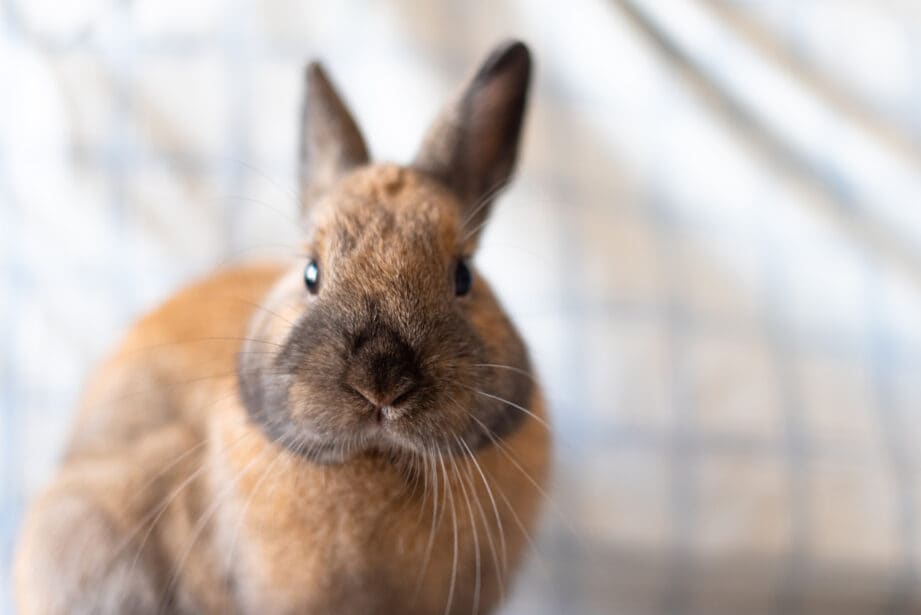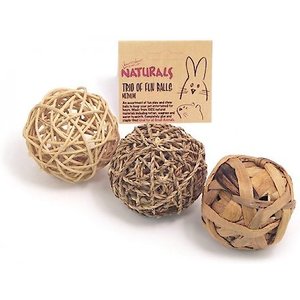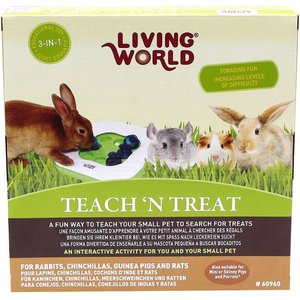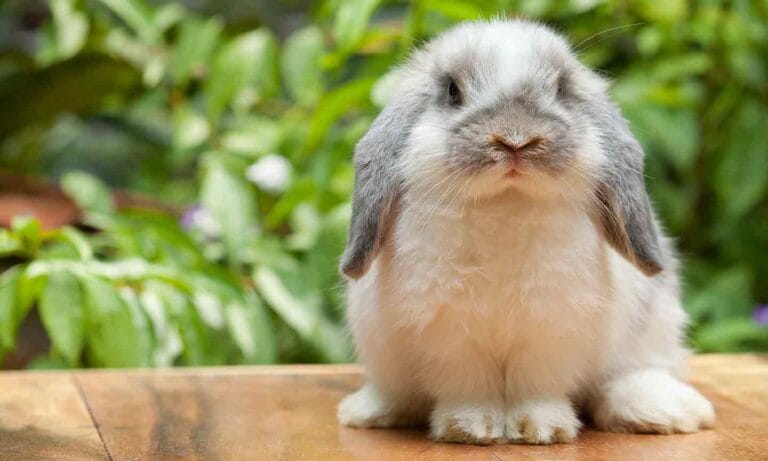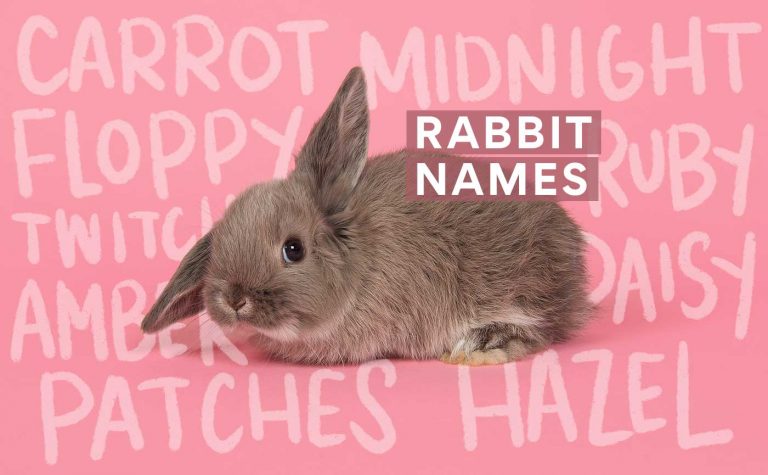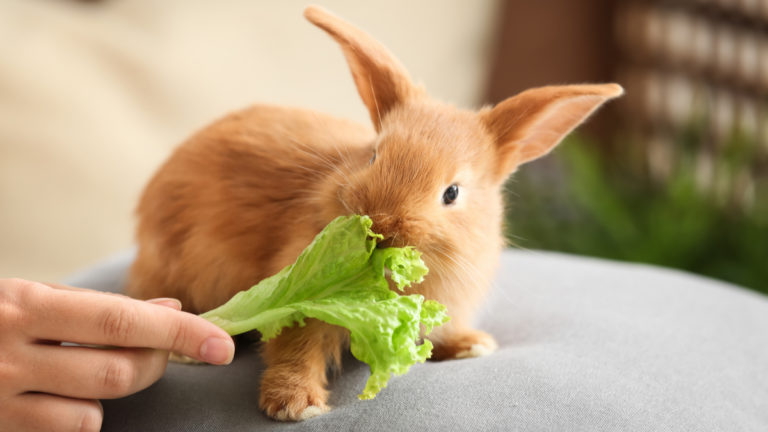From giving kisses to doing zoomies and loafing, there are countless ways bunnies hop into our heart. But before you add one to your family, it’s important to know how much rabbits cost. We spoke with experts to learn about rabbit prices and how much it generally costs to properly care for them.
In This Guide:
How Much Does Buying or Adopting a Rabbit Cost?
The typical costs of buying a rabbit from a reputable, ethical breeder can range from $885–$1,490, says Jennifer Lee, executive director at San Diego House Rabbit Society in San Diego. If you’d like to adopt a rabbit from a shelter or rescue, fees may cost anywhere from $85–$450.
The cost of a rabbit depends on a breeder’s reputation, location, and the type of rabbit. You can find a responsible breeder who prioritizes the breed’s health and well-being through the American Rabbit Breeders Association (ARBA).
Shelter and rescue rabbit adoptions typically cost much less, in part because demand for bunnies is typically lower than for other rescue animals, such as dogs or cats.
Up-Front Costs of Owning a Rabbit
“Rabbits are unique and require more specialized care than some may realize,” says Susan Tyson, VMD, MS, veterinarian and owner at Avian & Exotic Philly Vet Medical Surgical Clinic in Philadelphia. “Their anatomy, behavior, and diet needs are important to consider when setting up their new home.”
Below are essential products you’ll want to have prepared for when you bring your new rabbit home.
Cage
While rabbits are smaller pets, they need more space than one might think—especially when it comes to their adorable binkying!
“A proper indoor rabbit cage should be large enough for the rabbit to stretch out and move around freely,” Dr. Tyson adds. “Many options may include a hutch for sleeping and open room for daily activities.”
A cage can cost $50–$300 depending on the size and type, or less if you opt to build your own.
Bedding
When selecting bedding for your rabbit, Dr. Tyson recommends soft, thick material for their comfort and foot health. Because they’re prone to pododermatitis (aka bumblefoot), a painful swelling of the feet, it’s best to avoid metal grates and make sure hardwood flooring has padded areas to reduce trauma to their feet.
The initial cost of bedding is $30–$100, depending on the brand, type, and amount you purchase. For reference, a 60-liter bag of Carefresh typically lasts four to six weeks for one rabbit.
Litter Box and Litter
Did you know you can litter train your rabbit? It’s true—rabbits can learn where to go potty too!
A rabbit litter box and soft, absorbent material, like paper or wood pellets, topped off with a soft layer of hay are essential, Dr. Tyson says. Fully clean their litter pan daily to keep their habitat sanitary.
The cost of a litter box can range from $10–$30. Depending on the brand and size of the litter, it can cost $10–$40. A 5-pound bag will typically last one to two weeks for one rabbit.
Food and Water Bowls
Choose sturdy, spill-proof rabbit food and water bowls, or bottles to prevent spillage or leaks. That way, you know your bunny is eating and drinking as much food and water as you give them. Keep their water bottle or water bowl filled with a constant supply of fresh water.
Food bowls and water bottles generally cost around $15 for both.
Hay and Greens
Rabbits are hind-gut fermenters who need a high-fiber diet to maintain their gut health. Thus, high-quality hay should make up 80–90% of your bunny’s diet. This is also important to help keep their teeth at a healthy length since they grow continuously (about 2 millimeters every week!), Dr. Tyson says.
Fresh, leafy greens (e.g., romaine, dill, and parsley) should make up the other 20% for nutritional variety.
The price of hay varies depending on the type and size, costing anywhere from $5–$50. For example, a 15-ounce bag of Oxbow Animal Health Western Timothy Hay will last three to four days for one rabbit.
The cost of vegetables varies by season and location.
Recovery Food
Recovery food, like Critical Care, is a hay-based powdered food mixture that pet parents should have in case of emergencies, such as if your rabbit stops eating for any reason. When combined with water, you can syringe feed your rabbit to help them get the nutrients they need.
“This is crucial for every rabbit owner to have at home,” Dr. Tyson says.
Depending on the brand and size, this can cost $10–$60.
Toys and Enrichment
Considering how brainy and athletic rabbits are, they'll need daily physical exercise and mental stimulation to stay healthy and happy, Dr. Tyson says. A variety of toys, like chew toys, snuffle mats, and puzzle toys, can prevent boredom and keep them active and entertained.
They’ll also need at least one hideout, like the Kaytee igloo hideout—a spot they can laze around and feel safe and secure in.
Toys and enrichment items can range from $10–$30.
Carrier
While most bunnies can be picked up and held, a rabbit carrier allows you to more safely and securely transport them. You’ll want one ready when picking up your new rabbit from a breeder or shelter to bring them home.
When looking for a rabbit carrier, choose one that is spacious, well-ventilated, secure, and easy to clean.
A high-quality carrier can cost up to $70.
Grooming Tools
Rabbit grooming tools are key to helping keep your bunny looking fresh and clean. For basic maintenance, look for a nail trimmer, slicker brush, and soft bristle brush. These supplies can cost around $20 in total.
Veterinary Costs
In addition to these supplies, it's imperative to schedule necessary veterinary appointments. These include:
- Initial vet checkup. It’s recommended to meet with an exotic vet for your rabbit’s checkup within the first week of them being home. This exam ensures your rabbit is healthy and helps establish a relationship with an exotic vet for ongoing care, Dr. Tyson says. The initial exam can cost $90–$130.
- Vaccinations. Protect your bunny from diseases with vaccinations. Dr. Tyson says the rabbit hemorrhagic disease virus (RHDV) vaccine is especially important and should be given as early as 8 weeks old. The cost ranges from $30–$100 per dose, plus the cost of the exam for eligibility.
- Spaying or neutering. Spaying or neutering your rabbit can help prevent unwanted pregnancies, health problems, and behavior issues. This can cost $500–$1,200.
Common Costs of Bringing Home a New Rabbit
Cage
$50–$300
Bedding
$30–$100
Litter box
$10–$30
Litter
$10–$40
Food and water bowls
$5–$15
Hay
$10–$50
Vegetables
$20–$50
Recovery food
$10–$60
Toys and enrichment
$10–$30
Carrier
$70
Grooming tools
$20
Veterinary care
$620–$1,430
TOTAL:
$865–$2,195
Rabbit Costs Over Time
Once you’ve brought your bunny home, there will be ongoing costs to help them live a happy, long life.
Monthly Expenses
Certain items are crucial for your rabbit’s health and well-being. Our experts note that monthly expenses for your bunny will include:
- Hay: $20–$50
- Vegetables: $20–$50
- Pellets: $13–$26
- Toys: $10–$30
- Treats: $10–$20
- Bedding: $10–$50
- Litter: $18–$21
- Professional grooming sessions: $20–$30 for short-hair rabbits; $60 for long-hair rabbits (optional)
These costs can vary depending on the products you purchase; whether you decide to groom your rabbit yourself; and whether you buy certain products like food and bedding in bulk.
Yearly Expenses
The best way to ensure your rabbit is healthy is with routine vet visits. These can be yearly, or as often as your vet recommends based on your bunny’s age and individual needs.
Dr. Tyson and Lee note that yearly expenses associated with rabbit care include:
- Vet visits: Rabbit health can change quickly, so they need to be observed on a daily basis, Lee says. After a certain age, usually around 7–8 years old, your vet may recommend scheduling a routine checkup every six months to see if levels of health have changed. A visit can cost around $100.
- Diagnostic tests: Diagnostic tests, such as blood tests, X-rays, and chemistry tests, can check for developing health conditions and create a baseline for your vet to help catch disease early. Talk with your vet to learn more about how often they recommend these for your rabbit. This may cost $300–$500 depending on the clinic and specialty.
- Vaccinations: Yearly booster vaccinations keep your rabbit protected from certain diseases, like rabbit hemorrhagic disease virus 2 (RHDV2). This costs about $30 per annual booster.
Unexpected Expenses
If your rabbit has a health issue, such as an injury or illness, they may require emergency care, Dr. Tyson says.
Some examples of unexpected emergency expenses include:
- Consultations
- Diagnostic tests
- Emergency vet costs
- Surgeries
- Overnight stays
These can vary widely in costs. Our experts note that a consultation could range from $150–$300. Additional treatments or surgeries can cost $1,000–$4,000 depending on whether a rabbit needs an overnight stay at a vet office or emergency visit through an emergency clinic.
Pet health insurance that covers rabbits can help offset the cost of veterinary care, and bring you peace of mind in case of an unexpected illness or accident.
Average Annual Costs of Keeping a Pet Rabbit
Regular food costs
$636–$1,512
Cleaning and upkeep
$336–$852
Toys
$120–$360
Veterinary care
$580–$630
TOTAL:
$1,672–$3,354
This content was medically reviewed by Teresa Manucy, DVM, Chewy veterinarian.
Share:
